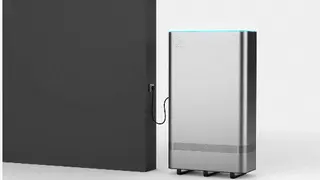Electricity has reached every village in the country, the government declared about a year ago. Yet, millions of homes across India are still to be connected and many of those who are, do not have access to reliable supply 24x7. Many get just 5-6 hours of electricity. As a result, companies that sell solar-powered lamps and various appliances continue to experience robust growth.
“Electricity is used more as a back-up in such homes,” says Dhaval Radia, Global Business Leader of Greenlight Planet, a company that is making and selling solar-powered lamps and other appliances for about a decade now. Many homes use electricity supply to charge batteries to ensure that lighting when the supply is cut and continue to rely on solar for much of their energy needs.
However, higher prices of solar powered devices act as a barrier for the poor. For instance, the basic solar lamp that Greenlight Planet distributes costs about ₹500, even though they are mass produced in its factory in Shenzen. While it is a lot of money for many poor households to pay upfront, the lamp pays back in 5-6 months when it replaces a kerosene lantern for which families incur a monthly expenditure of about ₹100. Appliances such as solar fans, which is seeing growing demand, are far more expensive than the conventional fans at about ₹6,000. And the solar-powered television set, Greenlight Planet’s latest launch, is priced between ₹18,000 and ₹25,000, depending on screen size and other configurations.
A tie-up with about 25 top micro-finance institutions across India has helped Greenlight sell a large number of lamps, and Radia claims that the past three years have been among the best years of growth and sales for the company. The MFI network accounts for 75 per cent of the sales of Greenlight’s products in the country — lamps, home lighting systems and table fans. Even the solar TV was launched on a pilot basis through MFIs such as Bharat Financial Inclusion Ltd in the north-eastern parts of the country about three months ago. In the months ahead, the TV will be sold through other MFI partners as well.
The association with MFIs ensures that the consumer can pay for the products in small instalments over a period of 12-24 months, depending on her capacity to pay. In many instances, households or small businesses have a loan running with the MFI and that loan is topped up to allow the purchase of a solar product.
Greenlight has also tied up with India Post, kirana shops in villages as well as e-commerce platforms such as Amazon, Flipkart and Snapdeal to sell select products.
Plans for the future
Greenlight is now evaluating plans to introduce small-size refrigerators and inverters that can power refrigerators. These refrigerators would be particularly useful in improving access to medicines in rural areas, feels Radia. The company is also looking at starting e-commerce operations with tracking functions to ensure delivery of its products to more geographies. The idea is to take care of the delivery of orders that partners bring, he explains. At the moment a bulk of the demand for its products originates in Uttar Pradesh, Bihar, Odisha and some southern States.








Comments
Comments have to be in English, and in full sentences. They cannot be abusive or personal. Please abide by our community guidelines for posting your comments.
We have migrated to a new commenting platform. If you are already a registered user of TheHindu Businessline and logged in, you may continue to engage with our articles. If you do not have an account please register and login to post comments. Users can access their older comments by logging into their accounts on Vuukle.